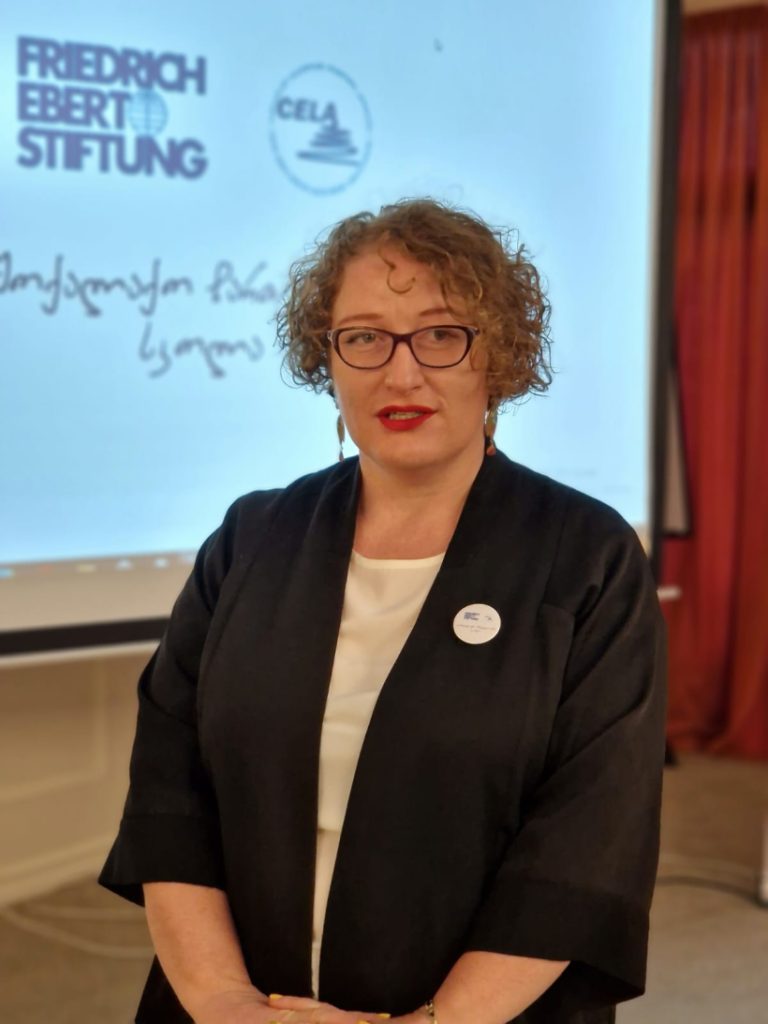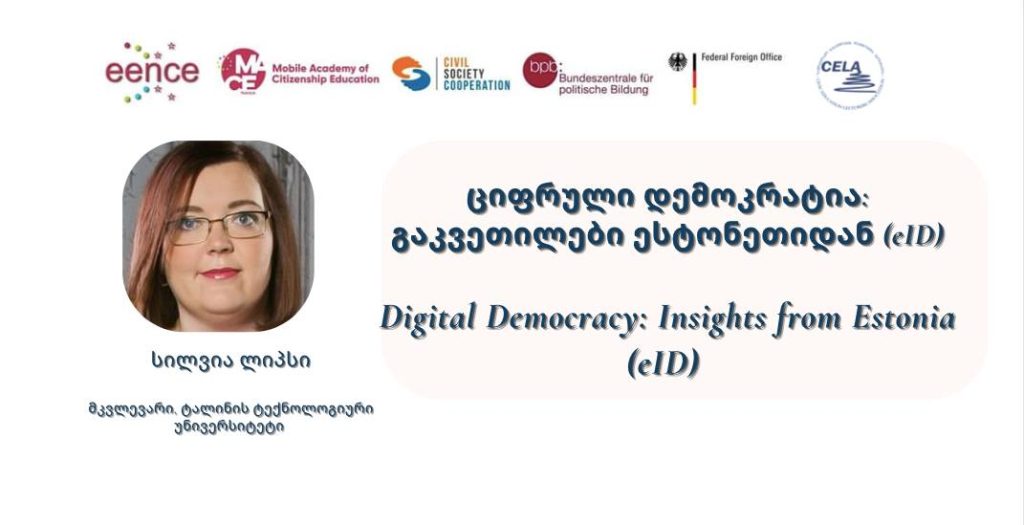The project ‘’Strengthening ICT Skills for Empowering Democracy’’ has launched
This project aims to strengthen ICT skills among students to ensure better citizens’ democratic control and monitoring over the government.
The first training session on E-democracy and E-governance was held on September 9-10. The main concern was the Gender dimension of ICT tools, using E-tools to ensure fair elections in Georgia and artificial intelligence (AI) usage in participatory processes.
Project manager Tamar Karaia told about what happened at the first training session:

“During the initial stages of the project ‘Strengthening ICT Skills for Empowering Democracy’, we embarked on a multifaceted approach to gather insightful data and foster meaningful discussions. We initiated this stage by sending formal requests for public information to various state agencies, marking the commencement of our data acquisition phase. The project focuses on the citizen participation tools and especially, the platforms: ichange.gov.ge, so we contacted for the qualitative survey to Civil Service Bureau and Digital Governance Agency of Georgia.
This endeavor was driven by the overarching goal of accumulating relevant data to inform the creation of a robust scientific article that would contribute significantly to our understanding of the subject matter as well as after publication, it will reach to wider scientific (and not only) society on participatory electronic skills for strengthening democracy.
Our commitment to knowledge dissemination and capacity-building was made evident through the successful execution of the project’s first training session. This event took place on September 9-10, drawing together experts and stakeholders from diverse backgrounds (using Zoom platform).
The focal points of discussion during this session revolved around E-democracy and E-governance, with a specific emphasis on the Gender dimension of ICT tools. Participants explored the potential of utilizing E-tools to ensure equitable and inclusive elections in Georgia. Furthermore, the discussion delved into the fascinating realm of artificial intelligence (AI) and its burgeoning role in participatory processes. These meetings paved the way for valuable insights, laying the foundation for future project activities and conclusions.
In summary, the project’s initial activities have set a promising trajectory for our research and capacity-building efforts. Through the analysis of public data and engaging discussions during the training session, we are poised to deepen our understanding of the intersection between ICT, democracy, and governance, with a particular focus on gender equality and AI’s transformative potential in democratic processes. These early stages have generated a wealth of perspectives and ideas, setting the stage for forthcoming phases in our endeavor to empower democracy through strengthened ICT skills.
It should be mentioned that the initial stage made available to plan more appropriately the second training sessions for 16-17 September, emphasizing on models of e-governance and their implications based on best international practices and on the other hand, practical workshops for fostering ICT skills within the students. Meanwhile, based on the first training sessions, the second training stage will include practical exercises for raising awareness regarding governmental e-platforms for citizen participation”.

The project is implemented within the Eastern European Network for Citizenship Education (EENCE) Civic Education Ideas Competition framework. It is funded by the Federal Agency for Civic Education (Bundeszentrale für politische Bildung/bpb).


